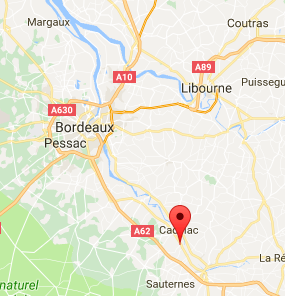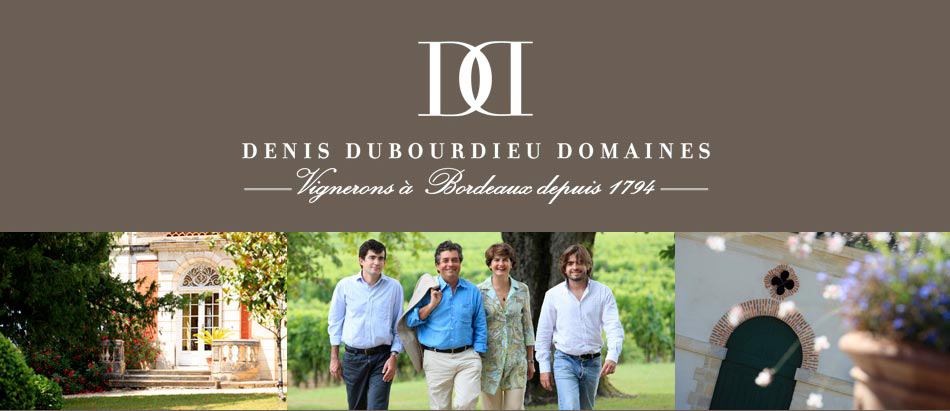
Overview: The Dubourdieu family comes from a long line of “vignerons,” or winemakers, from the Bordeaux region. Denis Dubourdieu and his wife Florence continue that tradition today, and with the help of their two sons, Fabrice and Jean-Jacques, they manage several estates: Chateau Doisy Daene, Clos Floridene, Chateau Reynon, Chateau Cantegril, and Chateau Haura. These estates cover an area totaling about 135 hectares, in the Sauternes, Graves, and Cadillac-Côtes de Bordeaux regions. Average production for the Domaines Dubourdieu total about 600,000 bottles per year, 60% of which are exported to 40 different countries.
For more information on Denis Dubourdieu, or has he’s known in some circles,”The Professor of Bordeaux”, follow the link to read Decanter’s profile on Dubordieu and his estates: Decanter’s Man of the Year
Location: Situated along the Garonne river, 35 km southeast of Bordeaux, the Domaines Denis Dubourdieu are located in Barsac in the Sauternes region, Pujols sur Ciron, Illats in the Graves region, and Béguey and Laroque in the Cadillac-Côtes de Bordeaux region. The terroir varies from estate to estate; on the right bank of the Garonne, the earth is quite hilly, whereas the left bank has pebbly terraces and calcareous plateaus.
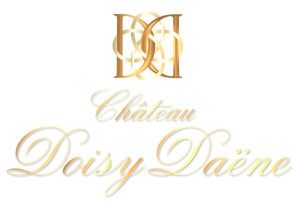
Overview: Located in Barsac in the Sauternes appellation, Château Doisy-Daëne (2eme Cru Classé in 1855) has been in the Dubourdieu family since 1924, and covers an area of about 18 hectares. For over 80 years, 3 generations of vine growers have used their talents to produce great sweet white wines: Georges (1924-1948), Pierre (1949-1999), and Denis since 2000.
Vines: The vines average more than 40 years of age. They are planted at a density of 7,000 vines per hectare, with 86% being Semillon, and 14% being Sauvignon Blanc. They are cared for with minimal treatments, no herbicides, and regular plowing between the vine rows to disrupt the growth of the more superficial roots. In an effort to balance the carbon footprint, the winery manages a forest area equal in size to the vineyards.
Soil: Typical of Barsac–a mix of red sand and clay, beneath which lies a bedrock of solid limestone peppered with fossilized shellfish and starfish. This particular soil composition is credited for blessing the wines with their trademark fresh acidity.
Viticulture:
 -Traditional ploughing is performed on the soil of our vineyard and no weed-killer is used.
-Traditional ploughing is performed on the soil of our vineyard and no weed-killer is used.
-Organic manures are made with vegetal-based composts.
-Bud removal, trellising and leaf removal are carefully done by hand.
-We are engaged in a process of abandonment of the use of chemical synthetic pesticides on all of our vineyards.
-Thus “grown like in a garden”, within an orderly and well preserved environment, our vines produce early concentrated tasty grapes which have the smoothness and brightness of fresh fruit aromas we wish to obtain in our wines.
-In an effort to balance our carbon footprint, we manage as well a forest area equal in size to our vineyards.
The Wines:

Château Doisy-Daëne Grand Vin Sec
Grape Varietals: 100% Sauvignon
Vinification: Once the grapes have ripened, a few bunches are collected on each vine from all the Sauvignon plots. After an eventual phase of skin contact, slow juice extraction takes place, protecting the grapes from oxidation. Free run must is strictly separated from press must, and clarification occurs through natural settling. Fermentation follows in oak barrels.
Aging: Lasts 8 months with lees regularly stirred
Tasting Notes: The Grand Vin Sec de Doisy-Daëne is one of the best Vins Blancs Secs of Bordeaux. Considered to be like Doisy-Daëne Barsac’s younger brother, it expresses in a different style all the distinction and finesse of this exceptional terroir. It possesses an unusual aromatic power, with grapefruit and white peach aromas in the bouquet, and flavors of pear and spice on the palate.
Cellaring Potential: Delicious when young, it also has great aging potential (5-10 years)
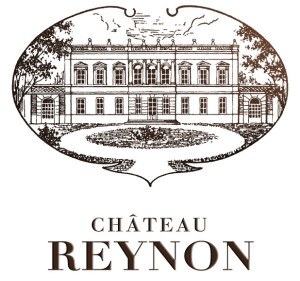
The Estate: Château Reynon, located in Beguey in the Premières Côtes de Bordeaux appellation, was purchased in 1958 by Florence Dubourdieu’s father, Jacques David. His daughter and son in law, Denis Dubourdieu, took over the vineyard in 1976. Thanks to their hard work, Château Reynon is today one of the most renowned Premières Côtes de Bordeaux estates.
The Vines: The red vineyard has a surface area of 20.5 ha, and is composed of 81 % Merlot, 6 % Cabernet Sauvignon, 13 % Petit Verdot. The density of the vineyard is 5,500 plants per hectare. The white vineyard is 12.8 hectares and is made up of 87 % Sauvignon and 13 % Sémillon. The density of the vineyard is 5,500 plants per hectare.
The Soil: Deep gravelly soil layers on clayey subsoil top a perfectly well drained hill. At mid-slope, the soils are clayey and calcareous and the rock protrudes in some areas. The soils are sandier at the foot of the slope.
The Wines:

Chateau Reynon Blanc
Production Area: 8.5 ha
Grape Varietals: 100% Sauvignon Blanc
Harvest: Hand harvesting is performed in 1-2 selective pickings of the grapes when they have reached the optimum aromatic ripeness.
Vinification: After an eventual phase of skin contact, slow juice extraction takes place, protecting the grapes from the oxidation process. Free run must is strictly separated from press must, and clarification occurs by natural settling. Fermentation takes place in stainless steel vats.
Aging: Maturation sur lies, 50% in steel tanks and 50% in 60-80 hl wooden barrels, for 5-7 months before bottling.
Tasting Notes: The combined elements of soil quality, moderate production, and the fine wine-making process create an elegant and dry white wine, at once complex and tasty, with grapefruit and white peach aromas, and mineral and smoky hints.
Cellaring Potential: Remarkable aging potential of at least several years

Chateau Reynon Rouge
Production Area: 20.5 ha
Grape Varietals: Merlot, Petit Verdot; Cabernet Sauvignon
Vinification: Ripened harvest is handpicked and undergoes 20-25 days maceration at moderate temperatures (25-30°C)
Aging: Aging takes place in oak barrels (a third of which is new) for 12 months
Tasting Notes: This wine has a deep color and subdued aromas of licorice, black currant, and smoke. The flavors are velvety, elegant, and powerful.
Food Pairings: Goes excellently well with beef and venison

Le Clos de Reynon Rouge
Overview: Le Clos de Reynon is the second wine of Chateau Reynon
Grape Varietals: Merlot, Cabernet Sauvignon, Petit Verdot
Vinification: Ripened harvest is handpicked and undergoes 20-25 days maceration at moderate temperatures (25-30°C).
Aging: Aging takes place in oak barrels and stainless steel vats.
Tasting Notes: This is an elegant, ruby red wine, complex and tasty, with fruity and spicy aromas.
Food Pairings: Red meat
Cellaring Potential: 10-15 years
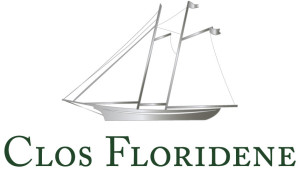
Location & History: Clos Floridène covers an area of 40 hectares in the Graves appellation. It lies mostly on the limestone plateau of Pujols sur Ciron (near Barsac), with a few portions located on the pebbly terraces of Illats. The name stems from the combination of the founders’ names – Denis and Florence Dubourdieu.
Established in 1982, Clos Floridène was originally a small, 2-hectare plot of land planted with old vines of Semillon and Muscadelle. There was the winemaker’s homestead, an old cellar, and 2-hectares of fallow land, which were immediately planted with Cabernet Sauvignon.
Over time, the vineyard was expanded through the purchase of adjacent plots of land. In 1991, Clos Floridène was substantially enlarged through the incorporation of Chateau Montalivet, a nearby 13-hectare vineyard.
The wines of Clos Floridène were first made in the cellar at Chateau Reynon. The first phase of building the cellar at Floridène started in 2004. The red Clos Floridène 2005 vintage was elaborated in this new facility.
The original historic homestead was also restored. It is now used as a bed & breakfast with an attached reception hall for hosting events and promoting wine tourism.
The renovation work was completed in 2018. In all, it took 36 years to launch Clos Floridène as an independent vineyard and winery, and today it is internationally known.
The Soils: From a geological standpoint, the soil of Pujols sur Ciron are much like the that of Barsac. A thin layer of red clayey sands rich in iron oxide, known as Barsac Red Sand, tops the limestone bed rock. This limits the vines’ roots growth to about 50 cm below ground. The water is stored within the slightly porous rock throughout the summer and is gradually released to the vines during the winter, thus preventing excessive water stress.
The Vines: The 17.3 hectare red vineyard has a high 72% Cabernet Sauvignon ratio combined with 28% Merlot. The plantation densities range between 5,500 plants (1.8 x 1m) and 7,140 (1.4 x 1m) plants per hectare. The 22.7 hectare white vineyard is composed of 56% Sémillon, 43% Sauvignon, and 1% Muscadelle. The plantation densities range between 5,500 plants (1.8 x 1m) and 7,140 (1.4 x 1m) plants per hectare.
The Wines:

Clos Floridène Blanc
Appellation: Graves Blanc A.O.C
Production Area: 41 hectares
Soil: Clay-limestone
Grape Varieties: Sauvignon Blanc, Sémillon
Average Age of the Vines: 35 years old
Harvest: Manually done with one pass over or two if necessary. The grapes are picked at their optimum aromatic ripeness.
Vinification: After a slow phase of skin contact, a gentle juice extraction is performed, protected from the oxidation process. Free run must is strictly separated from press must and the clarification takes place by natural settling. Fermentation in barrels renewed by quarter.
Aging: 9 months with lees regularly stirred.
Tasting Notes: Clos Floridène Blanc has the characteristics of a white wine produced on calcareous soils: green-gold color, intense aroma with fruity notes of white peach, lemon, grapefruit, toasted and grilled nuances. Powerful and fresh flavors of fruit, with the density and structure of a great white wine.
Cellaring Potential: At least 10 years

Clos Floridène Rouge
Grape Varieties: Cabernet Sauvignon, Merlot (percentages vary depending on the vintage)
Harvest: Ripened harvest is handpicked
Vinification: The grapes undergo 20 to 25 days maceration at moderate temperature (25°C to 30°C).
Aging: In oak barrels for 12 months (1/3 new wood)
Tasting Notes: Clos Floridène Rouge is strongly marked by an unusual association in Bordeaux–Cabernet-Sauvignon on calcareous soil. With a bright and intense color, it has black-currant and wild strawberry aromas, with hints of mint, licorice and smokiness. The fruit and tannins are powerful, silky, and fresh.



